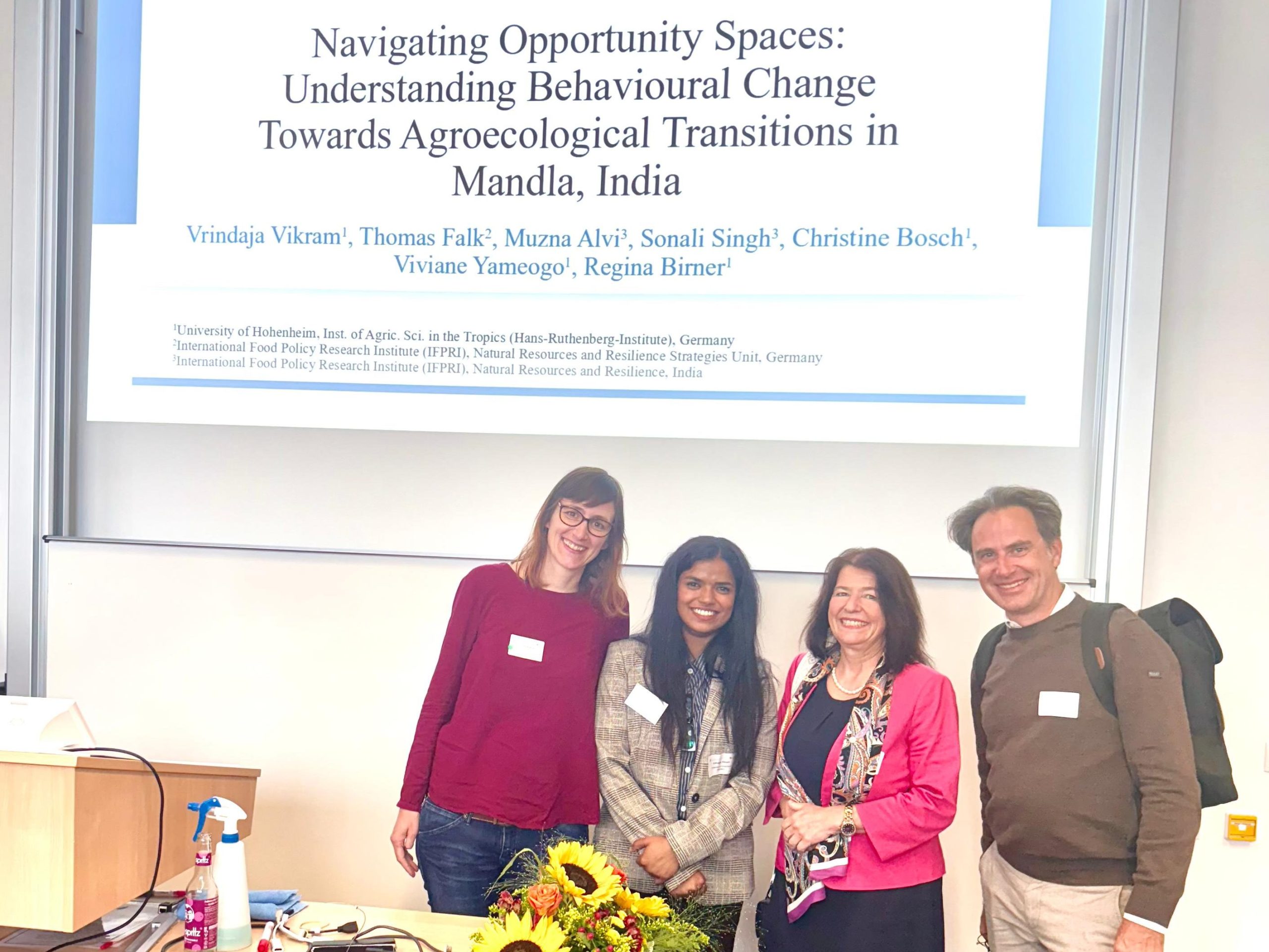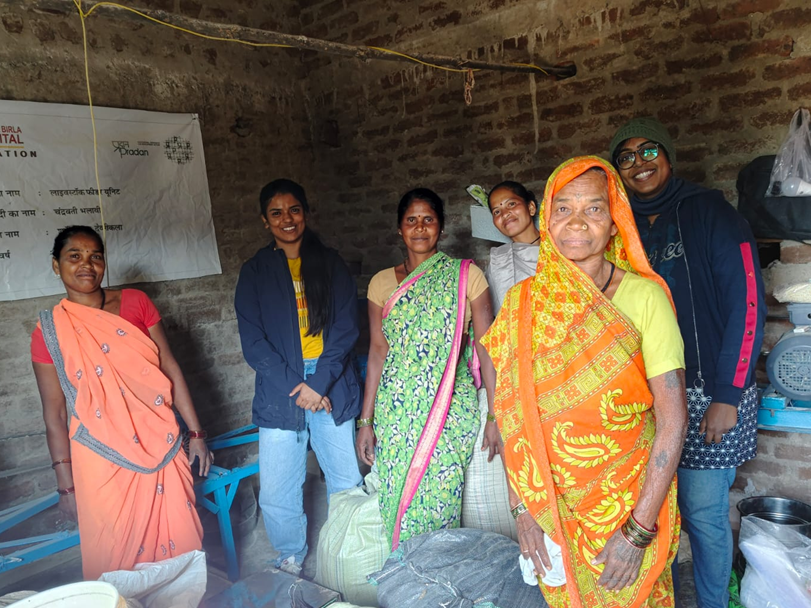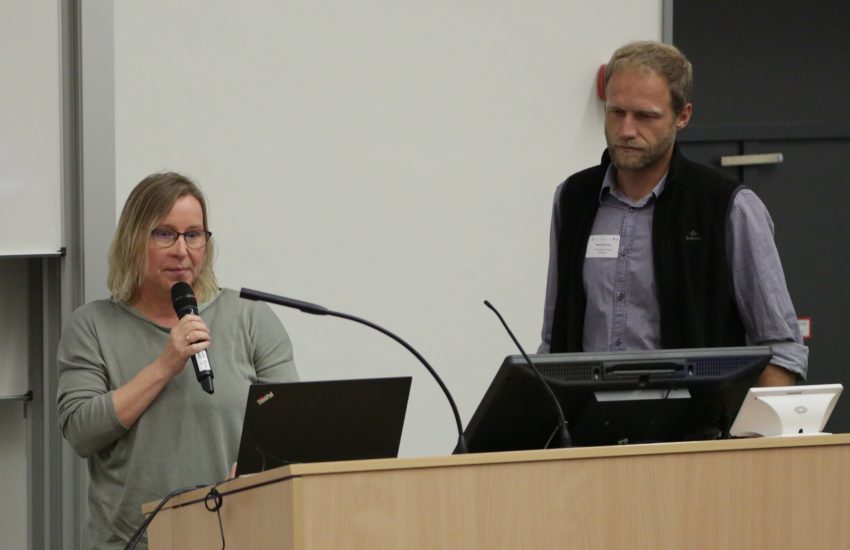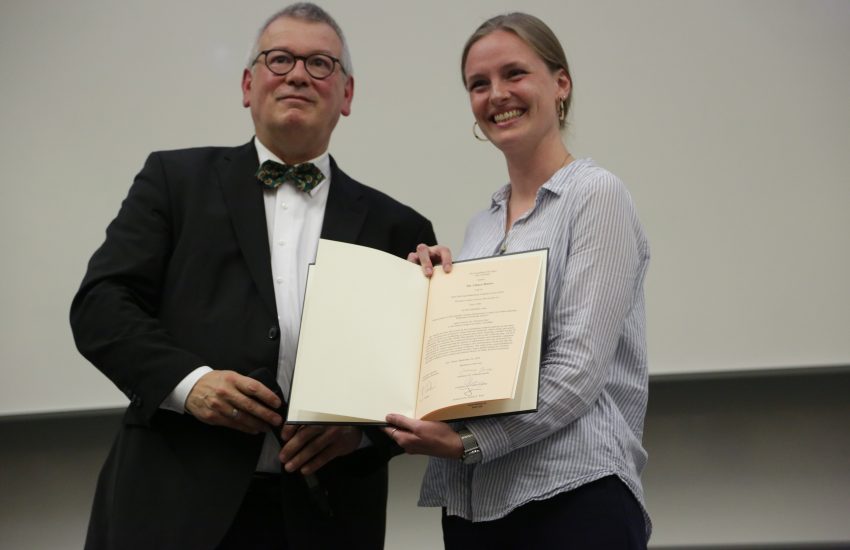Agroecological Transitions: Why Motivation Alone Isn’t Enough to Succeed
Imagine being a farmer who wants to do things differently—grow more diverse crops, care for the soil, reduce chemical use. You can already see the benefits. Your neighbours agree. Yet without access to credit, without tools or supportive networks, your vision remains just that: a vision. This is where the idea of opportunity spaces becomes crucial.

At Tropentag 2025, researcher Vrindaja Vikram highlighted that agroecological transitions are rarely blocked by a lack of motivation. What’s missing is often the space to act—whether financial, institutional, or social. Her research in Mandla, India, shows that behavioural change isn’t only about persuading people to adopt new practices; it’s about creating the conditions that allow those practices to take root.
Agroecological transitions are rarely blocked by a lack of motivation. What’s missing is often the space to act—whether financial, institutional, or social.
Agroecology—farming with nature rather than against it—is often discussed in technical terms. But in reality, it lives and dies in the realm of behaviour. Why people act, what constraints they face, and how their choices connect with others all shape whether transitions succeed.
In Mandla, a tribal-majority district in central India, Vikram examined how farmers, women’s self-help groups, civil society organisations, and government actors navigate these dynamics. The results were striking. Motivation was abundant across the board: farmers prioritised better incomes, while institutions emphasised public goods like soil health and biodiversity. Even more encouraging was the alignment across groups. During interviews, even those who hadn’t participated in the Vision-to-Action workshop—a process where communities design their own agroecological transition plans—expressed ideas that closely mirrored the official plan, indicating that the vision for change was both widely shared and validated.
It was a clear sign that local actors already share a common vision for change.

Credit: Vrindaja Vikram
So what holds them back? Resource constraints—lack of finance, limited tools, skills, and networks—remain the biggest hurdles, particularly for grassroots actors. When those resources are missing, opportunity spaces close, and change stalls. But through collective action—sharing risks, pooling knowledge, and recognising each other’s efforts—those spaces can reopen, giving transitions a chance to move forward.
Vikram’s conclusion is both simple and profound: agroecological transitions depend just as much on systems as they do on individuals. Farmers in Mandla are ready and motivated. What they need is not persuasion, but support.
Expanding opportunity spaces means designing policies, institutions, and interventions that allow agency to flourish.
The lesson stretches well beyond Mandla. Across the globe, communities are eager to embrace more sustainable farming. The role of science and policy is not to dictate the path, but to make sure the road is open and walkable.
When opportunity spaces expand, transitions don’t just become possible—they become inevitable.


